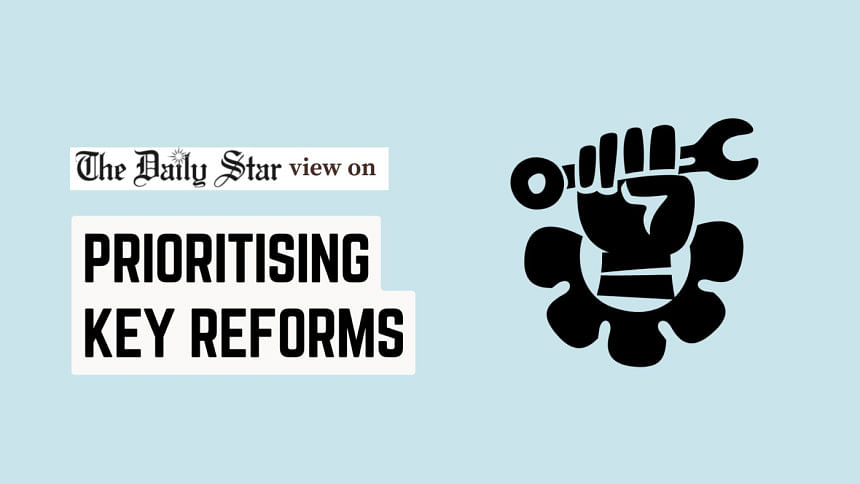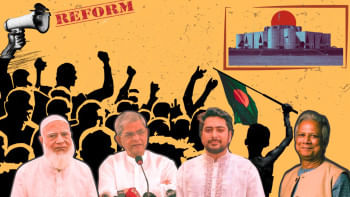Implement only essential reforms

Given the current political situation, wherein the call for an election roadmap has become louder than ever, it is important that the interim government only carry out some essential and practical reforms that can be backed by political consensus.
Since taking office on August 8 last year, the interim government has formed 11 commissions to reform the constitution, judiciary, election commission, police, public administration, local government, anti-corruption, health, women's affairs, mass media, and labour. All of them have submitted their reports, with many proposing more than 100 recommendations. Since March 20, the National Consensus Commission (NCC) has been holding talks with various political parties and other stakeholders to reach a common ground on the recommendations. While it is understandable that an agreement will not be reached on every single recommendation, some can be left behind for consideration at a later time by an elected government. In fact, during their dialogue with NCC members on May 25, civil society members urged the interim government to refrain from amending the constitution and leave the task to elected representatives. There are other such reform recommendations that are best addressed by a parliament rather than an interim administration, since such action may be viewed as crossing a constitutional boundary.
The interim government should also consider, while selecting recommendations, what is feasible within its tenure. For example, the police commission's report urges immediate implementation of a Supreme Court directive regarding arrests, searches, and questioning. This kind of recommendation can easily be implemented in the short term. Therefore, the government should carry out such reforms if doing so helps with holding a free and fair election. When the NCC was formed on February 12, its tenure was fixed for six months; in other words, we can expect the NCC to complete the discussions and deliver a summary of agreed-upon recommendations by August/September. If the election is going to be held anytime between December 2025 and June 2026, there may not be sufficient time left to implement even all the agreed-upon recommendations.
With that in mind, the interim government should prioritise recommendations that will make the return to democracy and a parliamentary system smoother. As such, the focus should be on the reports of the election, police, judiciary, public administration, and local government reform commissions. However, the government must be careful not to leave out key stakeholders in their attempt to implement the reforms. While the consensus of political parties is crucial, there are groups who will be impacted by the reforms, and they must be consulted as well. Ultimately, we hope all stakeholders will rise above their individual concerns and prioritise greater national and democratic interests in reaching an agreement on the necessary reforms.


 For all latest news, follow The Daily Star's Google News channel.
For all latest news, follow The Daily Star's Google News channel. 








Comments